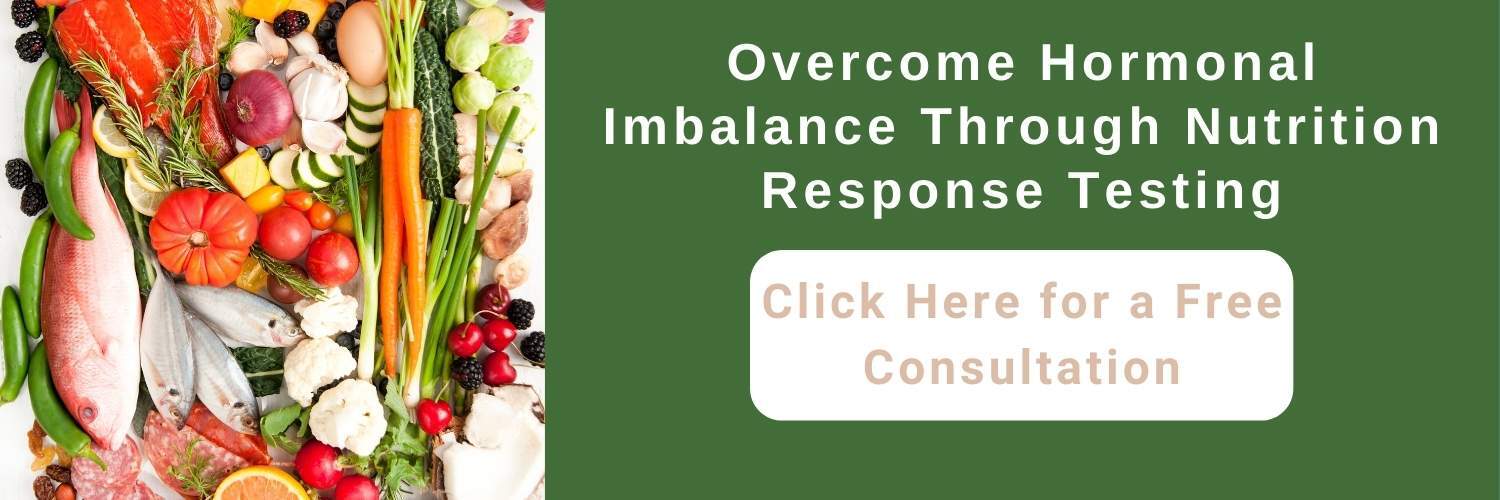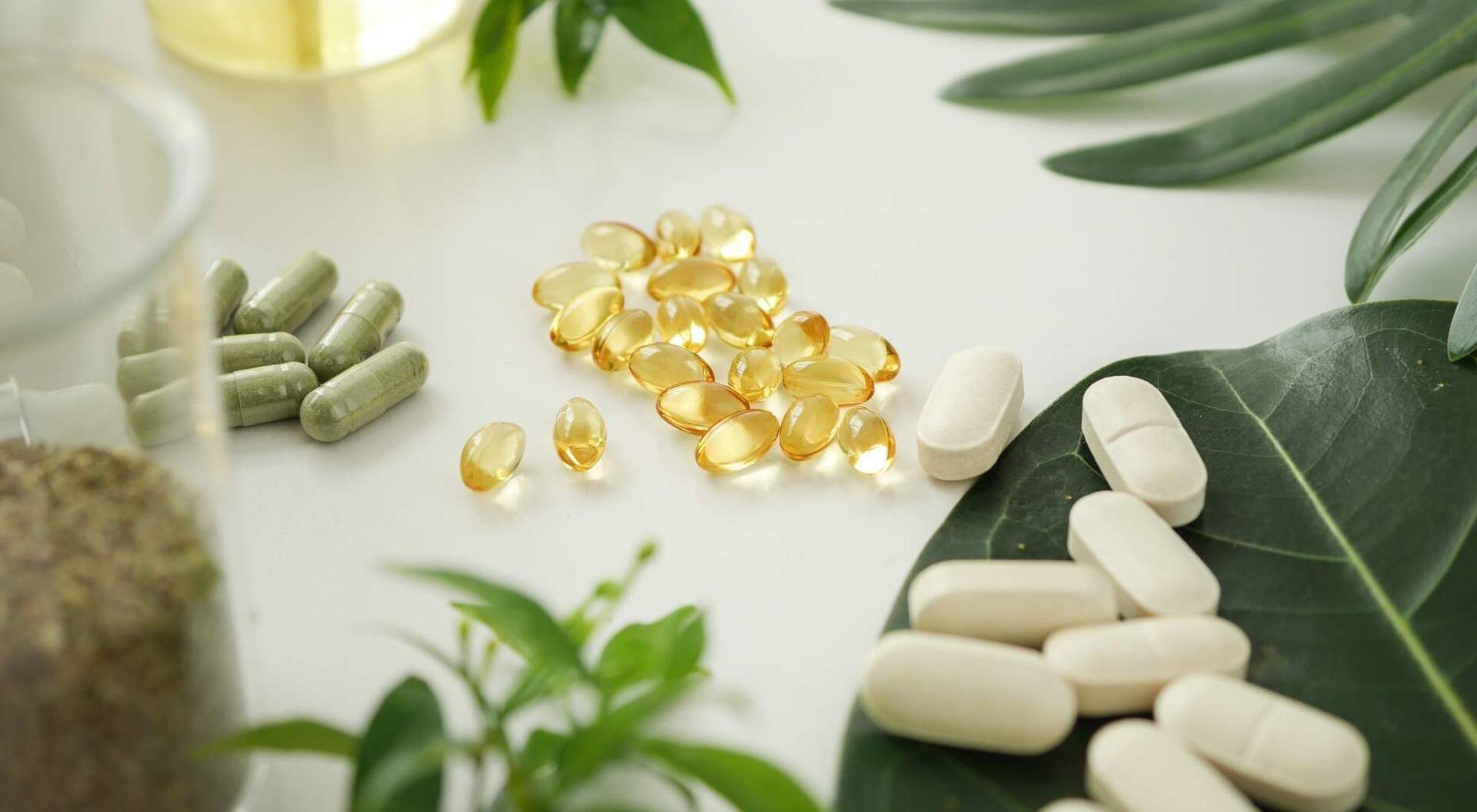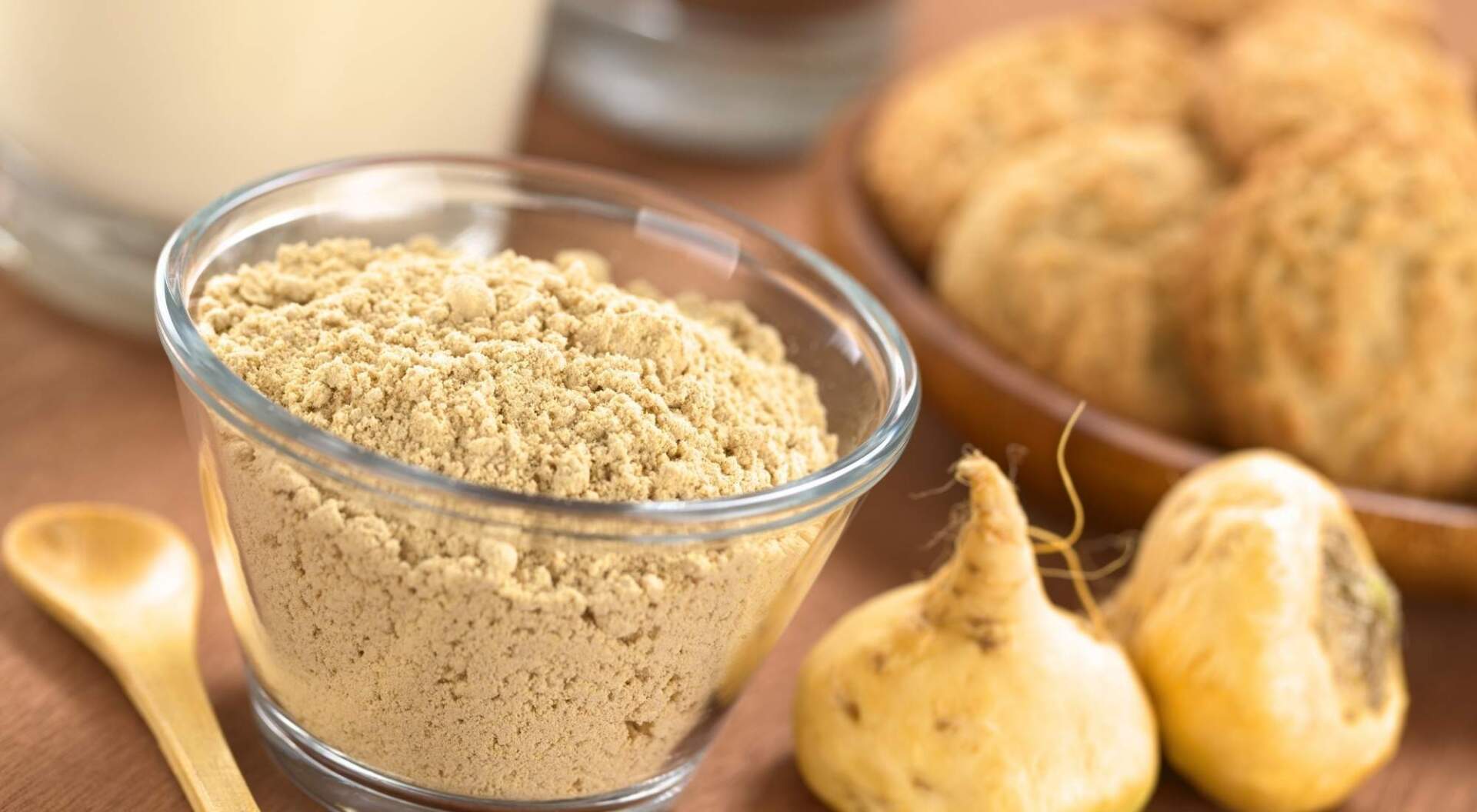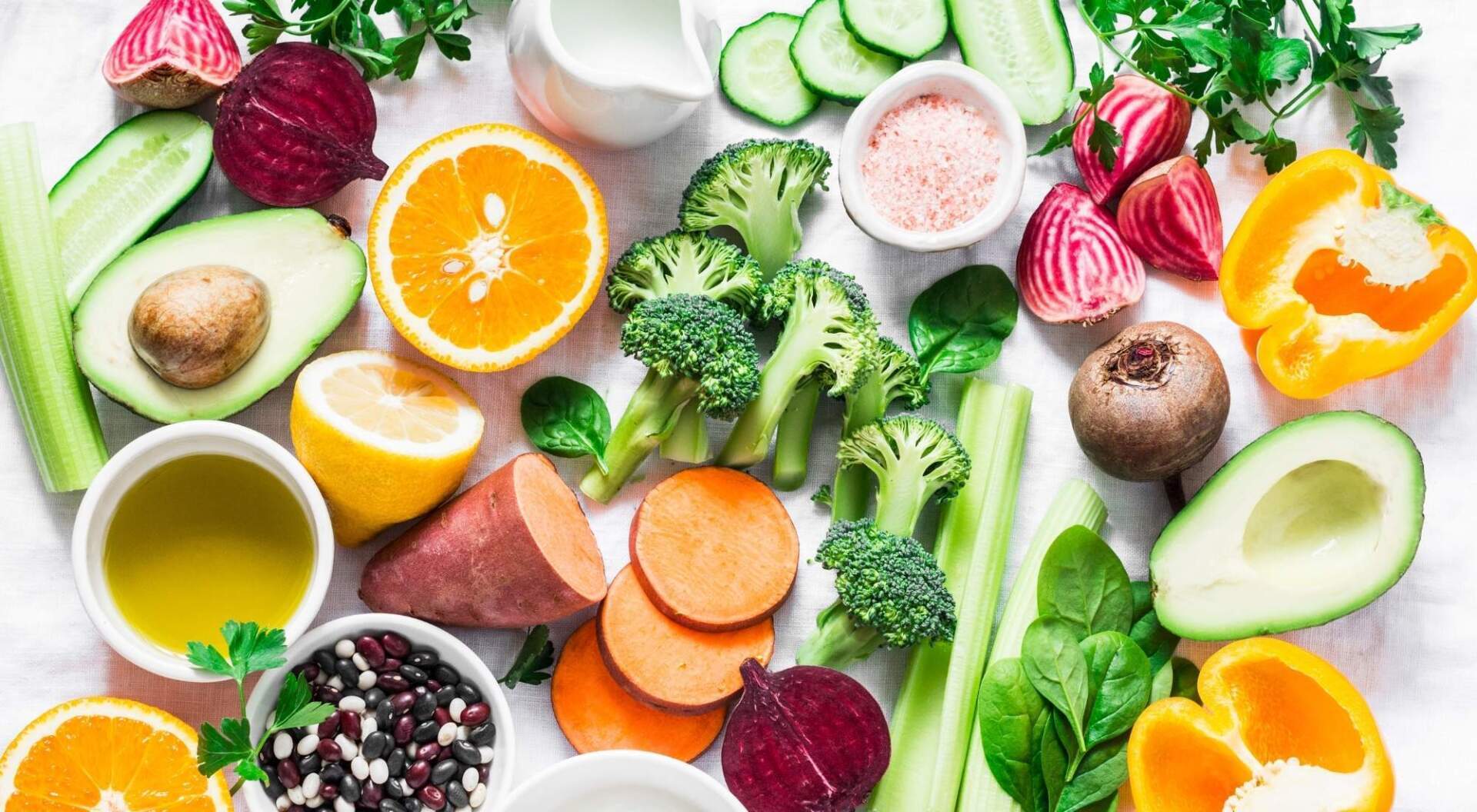Should You Take Vitamins for Hormonal Imbalance? Your Guide to Vitamins, Herbal Supplements, and Lifestyle Tips for Hormonal Health
"The content below is not intended to be a substitute for professional medical advice, diagnosis, or treatment. Always seek the advice of your physician or other qualified health provider with any questions you may have regarding a medical condition."
Hormonal imbalances can happen to anyone. Whether you’re experiencing sudden night sweats or ongoing fatigue, your hormones could be to blame.
It’s important to know that you’re not alone. Men, women, and children can all experience the uncomfortable symptoms of hormonal imbalance.
But, what can be done? Is there any way to find relief?
In this post, we’ll discuss:
- What causes hormonal imbalance
- Some of the best vitamins for hormonal imbalance; and
- Other lifestyle tips to support hormonal balance
Table of Contents
What Causes Hormonal Imbalances?
Before you can treat hormonal imbalance, you must first understand its cause.
The cause of your hormonal imbalance will depend on which glands or hormones have been affected.
Common causes include:
- Menopause
- Hormone therapy
- Pregnancy
- Breastfeeding
- Stress
- Medications
- Cancer treatments
- Tumors
- Eating disorders
- PCOS
- And more
Knowing what’s causing your hormonal imbalances is the first step in seeking treatment and finding relief.
What Are the Symptoms of Hormonal Imbalance?
While everyone experiences them differently, here are some symptoms that could point to hormone imbalances, specifically in women:
- Fatigue or feeling tired all the time
- Sleep issues
- Poor memory and concentration
- Irritability or anxiety
- Weight loss or gain
- Bloating
- Enlarged breasts
- Changes in appetite
- Carb or sugar cravings
- Sensitivity to temperature
- Aches and pains
- Headaches
- Low sex drive
- Irregular menstrual cycles or prolonged bleeding
- Vaginal dryness
- Hot flashes
- Infertility
- And more
If these symptoms ring true for you, then you may be experiencing a hormonal imbalance.
However, you should know that it’s not necessary to suffer through your hormonal changes.
Nutrition Response Testing can help determine the cause of your hormonal imbalance and evaluate how your body is functioning as a result of these imbalances.
Dr. Donna Sergi at HealthierU in Brooklyn, NY, is a certified Nutrition Response Testing Practitioner who can determine what your specific needs are and develop a plan to restore hormonal harmony and full functioning of your organs.
What Are the Best Vitamins to Take for Hormonal Imbalance?
In many cases, hormonal imbalances can be addressed by supplementing with the right vitamins and ensuring that you’re getting the hormone-balancing nutrients your body needs.
While you should always turn to food for the right nutrition, taking vitamin supplements while you get your diet in check can provide some relief.
Below is a list of some of the best
vitamins for hormonal imbalance.
Ascorbic Acid (Vitamin C)
Ascorbic acid, more commonly known as vitamin C, is an antioxidant and essential nutrient.
Supplementing with vitamin C can help ...
- Reduce adrenaline and cortisol levels
- Improve immune function
- Lower inflammation; and
- Reduce stress
… which are all factors that can play a role in hormonal imbalances.
Eating food rich in vitamin C or taking an extended-release vitamin C supplement can also improve blood pressure and reduce anxiety.
Vitamin D3 and K2
Vitamin D is responsible for easing hormone fluctuations because it’s actually a hormone itself. So, when you’re looking for vitamins to take for hormonal imbalance, vitamin D is a winner.
42% of Americans experience vitamin D deficiency, so for this reason it’s important to include this supplement in your daily diet — especially during the winter.
You can get vitamin D from the sun or certain foods, such as egg yolks or fatty fish. Or you can take a high-quality vitamin D supplement combined with vitamin K2 for better absorption.
Vitamin D3 can help with:
- Menstrual disorders
- A weak immune system
- Cardiovascular health
- Depression; and
- Certain types of cancer
Vitamin B6 and Magnesium
Magnesium on its own can help:
- Improve sleep
- Lower blood pressure; and
- Normalize heart rhythms
B6 aids in energy production and acts as a coenzyme for glucose, amino acid, and lipid metabolism.
When taken in combination, vitamin B6 and magnesium pack a powerful punch. Together, they can reduce anxiety and stress as well as improve severe PMS symptoms.
Vitamin E
Vitamin E can help relieve certain menopause symptoms in women, such as:
- Heart palpitations
- Insomnia
- Night sweats
- Hot flashes; and
- Vaginal dryness
Through its natural antioxidant properties, vitamin E can also help to reduce stress, which can be a major cause of hormonal imbalance.
Niacin (Vitamin B3)
A part of the B-complex vitamins, specifically B3, Niacin is known for its ability to promote relaxation and aid in a better night's sleep.
Niacin relaxes muscle tissue, which increases blood flow by allowing the arteries to widen. With increased blood flow comes reduced blood pressure.
Niacin is also related to
reduced anxiety, stress, and depression, all of which can cause hormonal imbalances.
5 Additional Supplements to Support Hormone Balance
In addition to vitamins, a few other supplements can be very effective in balancing hormones and improving overall hormonal health.
#1: Milk Thistle
Milk thistle has long been associated with liver health, but what most people don’t realize is the role the liver plays in regulating estrogen levels.
When the liver is congested it can no longer filter excess estrogen, and as a result of the built-up toxins, your hormone balance is disrupted.
Not only can it help regulate estrogen and remove liver toxins, but it’s also known to lower blood sugar levels and reduce acne flare-ups.
#2: Glycine
Glycine is found in the nervous system. It’s an amino acid neurotransmitter that creates the proteins needed for tissue growth and repair.
If your glycine is off then you’ll likely experience high levels of oxidative stress — meaning you aren’t getting the rest that you need.
When you take glycine before bed you not only restore your body’s regenerative powers but will also improve the quality of your sleep.
Sleep is essential in maintaining a healthy hormonal balance. Additionally, glycine is effective as an anti-inflammatory and can help prevent cardiovascular disease and diabetes.
#3: DIM (Diindolylmethane)
DIM, short for Diindolylmethane, sounds like something out of a toxic waste compound, but we assure you it is not! It is a chemical compound, but it has some seriously positive effects on hormonal health.
You can find DIM naturally in foods like …
- Cabbage
- Kale
- Brussels sprouts
- Collard greens; and
- Broccoli
… or you can take it as a supplement. It helps with detoxification but also balances estrogen levels by blocking testosterone.
Some studies suggest that it can help prevent hormone-related cancers such as
breast cancer and
prostate cancer as well.
#4: Chasteberry
Primarily found growing in the Mediterranean and Central Asia, the chaste tree produces the chasteberry. This berry was once known as “the monk’s pepper” because monks commonly used it to suppress sexual desire.
In the western world of natural medicine, the chasteberry is known as one of the best supplements for:
- Balancing female hormones
- Reducing symptoms of PMS; and
- Soothing menstrual cramping and pain
#5: Maca Root
Maca root is a hormone-balancing supplement that can be found in Peru. Not only does it provide natural energy, but it’s also known to boost libido and fertility.
Maca root is also well-known for its ability to ...
- Ease menstrual discomfort
- Stabilize blood pressure levels; and
- Relieve symptoms of depression
… while also providing a boost to your immune system.
Maca root can be taken in capsule form or ground into a fine powder.
Are Vitamins for Hormonal Imbalance Enough?
In a perfect world, you would get all of your nutrition from the food you eat, you’d have time for daily exercise, and you’d sleep like the dead for 7-8 hours a night. Right?
But we understand that life is busy.
You won’t always have a perfect diet, sleep, and exercise routine and that’s where supplements come in.
However, you can’t rely on supplements alone. Lifestyle will always play the most important role in your hormonal health.
4 Lifestyle Tips to Support Hormonal Imbalance
#1: Get a Good Night’s Sleep
When you get a night of good sleep you allow your body to recover from the stresses of the day.
Lack of sleep sends your hormones into overdrive, which becomes difficult to overcome.
Try to get between 7-8 hours of sleep each night and stick to a bedtime routine to prevent hormonal balances.
#2: Eat a Balanced Diet
By taking a more holistic approach to your diet, you’ll naturally incorporate many of the vitamins and minerals needed to stave off hormonal imbalances that can be caused by menopause or other issues.
Rather than eating foods like …
- Fast foods
- Fried foods and trans fats
- Soft drinks and sugary juice; and
- Refined sugars and carbs
… try adding more organic foods, including:
- Fresh fruits and vegetables
- Legumes; and
- Nuts and seeds
#3: Exercise Regularly
Hiring a personal trainer and dedicating your life to the gym is not necessary at all.
Consider finding activities that you enjoy and can easily engage in for 45 to 60 minutes at least 3x per week, including:
- Walking
- Water aerobics
- Pickleball
- Cycling
- Dancing
- And more
When you get into a routine that you enjoy, not only is it easier to stay consistent, but you’ll reap the health and hormonal benefits as well.
#4: Manage Your Stress
Stress is a major culprit where hormonal imbalances are concerned. These days, many women especially leave very little time for their bodies to wind down from life’s constant demands.
Stress can wreak havoc on hormones, so it’s important to take time to relax and reset.
You may enjoy unwinding activities, such as ...
- Light gardening
- Meditation
- Warm baths
- Reading a book; or
- Home spa treatments
… to help you forget about the stresses of the day.
Taking time for yourself is an essential step in regulating your hormones by reducing stress.
How Nutrition Response Testing Could Be the Solution to Your Hormonal Imbalances
Are you ready to test for hormone imbalances naturally? At HealthierU in Brooklyn, NY, Dr. Sergi will use Nutrition Response Testing to get to the root cause of your hormonal issues.
We specialize in a holistic approach to your health and will help you discover the best vitamins for hormonal imbalance.
At HealthierU, we know that no two people are alike. The cause for hormonal imbalance will vary from person to person, so we address your health in a way that is ...
- Safe
- Natural; and
- Effective
… and will leave you feeling like your best self again.
Get in touch with us today for your free consultation, and get on the path to a healthier you.






